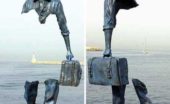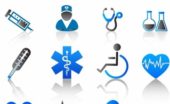Re Ian Bremmer 'Could third-party candidates upend the 2024 US election?' 3 April The current political movement in the USA…
Health & healthcare December 2023-
Written by Diana Thebaud Nicholson // April 2, 2024 // Health & Health care // Comments Off on Health & healthcare December 2023-
European Centre for Disease Prevention and Control
World Health Organization (WHO)
Global Health and Healthcare Strategic Outlook:
Shaping the Future of Health and Healthcare
Stephen Colbert: Beware The Elderly Antifa!
They’re old, and they’re coming for us all
2 April
Immigration to address the caregiving shortfall
By the time the last baby boomers turn 65 in 2030, the Census Bureau projects that 73 million older Americans will make up over one-fifth of the U.S. population.
The caregiver shortfall, and associated increase in price, means that the caregiving burden often falls on family members, particularly female relatives.
The positive impacts of immigration on the availability and quality of long-term care are well-documented, particularly as they pertain to nursing homes.
(Brookings) In the upcoming years, a confluence of factors will produce an unprecedented shortfall in the necessary supply of caregivers. If left unchecked, this shortfall will result in a series of harmful economic outcomes—including sharply raised caregiving costs, outsized burdens on informal caregivers, and subpar quality of care. Since demand for care is largely out of policymakers’ control, the most promising way to address these challenges is by expanding the supply of caregivers. And one of the best strategies for expanding the supply of caregivers is through expanded pathways for legal immigrants.
12 March
Virginia bill would give alternate licensing path to foreign doctors
Valerie Plesch
(The World) Across the United States, communities are facing physician shortages, especially in rural and medically underserved areas. In Virginia, a new bill seeks to address these shortages. If passed, it would create a pathway for foreign-trained doctors to continue with their careers, while contributing to the medical workforce in those communities. Valerie Plesch reports from Maryland and Virginia on the foreign doctors interested in using their medical expertise here, and the places that need them.
14 January
Neurosurgeon works to slow Alzheimer’s progression, treat addiction with cutting-edge technology
(60 Minutes) Dr. Ali Rezai allowed us to witness his revolutionary attempt to use ultrasound to slow down the cognitive decline in three patients diagnosed with Alzheimer’s disease. It’s never been done before.
Dr. Ali Rezai: There’s no miracle cures here. It’s advancing medicine with calculated risks and pushing the frontiers.
Dr. Rezai and his team are focused on these red patches in the patient’s brain scans. The red indicates the densest beta-amyloid protein. That gummy protein is believed to play a major role in Alzheimer’s by disrupting communication between brain cells.
Dr. Ali Rezai: In people with Alzheimer’s it accumulates much faster. And over time, these protein aggregates, we call them plaques. Like plaques in the arteries, they keep on accumulating and impacting function.
Dr. Ali Rezai: Typically, you go into the clinic, and you get an IV, and you have the antibody infusion over one to two hours. And you have to do it once a month or twice a month for 18 months and longer. And during those 12 to 18 months, the brain is continuing to progress. Alzheimer’s is not going away.
It takes so long because the drugs have a hard time getting through something called the blood brain barrier. This tight filter of cells line the blood vessels to keep toxins from leaking into the brain…but it also prevents almost all of the medication from getting in too.
Dr. Rezai thought he could solve that problem with ultrasound – the same technology that’s been used for 70 years to give doctors a view of organs and fetal development.
He chose ultrasound because it easily penetrates the skull and can be focused — like sunlight through a magnifying glass – to help open the blood brain barrier and allow the drugs to rush in.
Dr. Ali Rezai: This way we’re getting the payload– the therapeutic payload exactly to the area it needs to go with a high penetration.…
11 January
I Have Covid. Should I Take Paxlovid?
We asked experts about who should take the antiviral medication, how well it works and where to get it for free.
(NYT) As hospitalizations and deaths from Covid-19 rise, fueled by a fast-moving new variant that now accounts for a majority of U.S. cases, Paxlovid can help protect patients from some of the worst outcomes of the illness.
But few people end up taking the antiviral medication. Some may not realize they qualify for the drug, or are wary of having a rebound case of Covid.
But there is clear evidence that Paxlovid can prevent severe illness in people at high risk, and it’s still possible to get the drug for free or at a low cost. Here’s what to know.
2023
14 December
A cry for help: Early detection of brain injury in newborns
(via FaceBook post) Since the 1960s, neonatal clinicians have known that newborns suffering from certain neurological conditions exhibit altered crying patterns such as the high-pitched cry in birth asphyxia. Despite an annual burden of over 1.5 million infant deaths and disabilities, early detection of neonatal brain injuries due to asphyxia remains a challenge, particularly in developing countries where the majority of births are not attended by a trained physician. Here we report on the first inter-continental clinical study to demonstrate that neonatal brain injury can be reliably determined from recorded infant cries using an AI algorithm we call Roseline. Previous and recent work has been limited by the lack of a large, high-quality clinical database of cry recordings.
Charles C. Onu: Did you know that using a simple recording of a baby’s cry, you can learn about their health?
We worked closely with AI pioneers Yoshua Bengio and Doina Precup to validate this in clinical settings. Our AI was accurate in detecting neonatal brain injury from cry sounds by a striking 92.5%!
This is the first clinical study to demonstrate the utility of the infant cry as a vital sign, in collaboration with leading neonatologists across 3 continents. This work opens the door for non-invasive and contact-free monitoring in newborns.
3 December
COP28: The climate crisis is also a health crisis
(UN news) Health has made it onto the agenda of a UN climate conference, and health advocates at COP28 in Dubai on Sunday said the topic was long overdue for discussion as climate inaction is costing lives and impacting health every single day.
Our planet has logged higher mean temperatures each year, with 2023 set to be the hottest on record. Ice sheets are melting at an unprecedented rate. Wildfires have made the air hazardous in some regions, while in others, floods regularly threaten to contaminate drinking water.
Against this backdrop, more and more people are being affected by disasters, climate-sensitive diseases and other health conditions.
WHO Director General Dr. Tedros Adhanom Ghebreyesus told delegates at COP28 that it was long overdue for talks around environmental health, rising sea levels, and melting glaciers to include the direct impacts of such climate shocks on human health.
This first-ever dedicated ‘Health Day’ at a COP is highlighting several key events, including on public-private partnerships for healthcare climate action and on unlocking relevant financial and political commitments.



